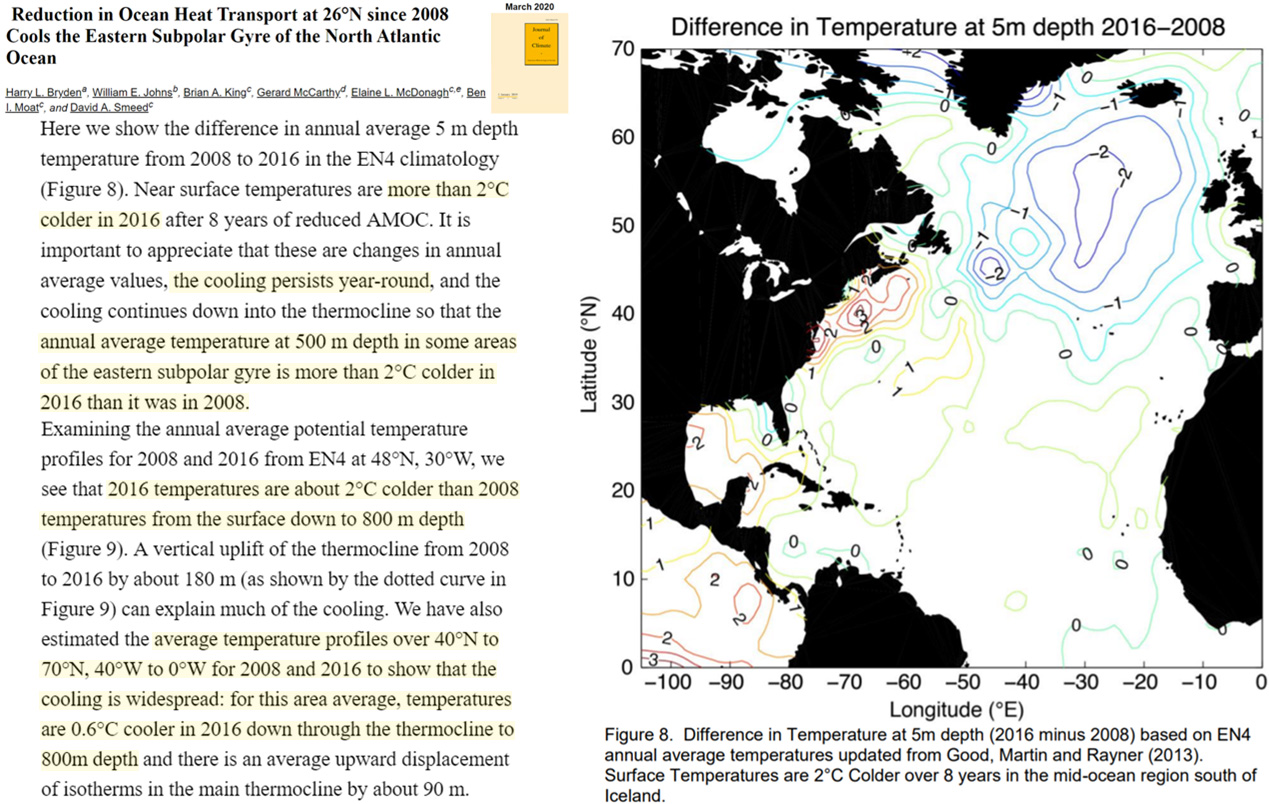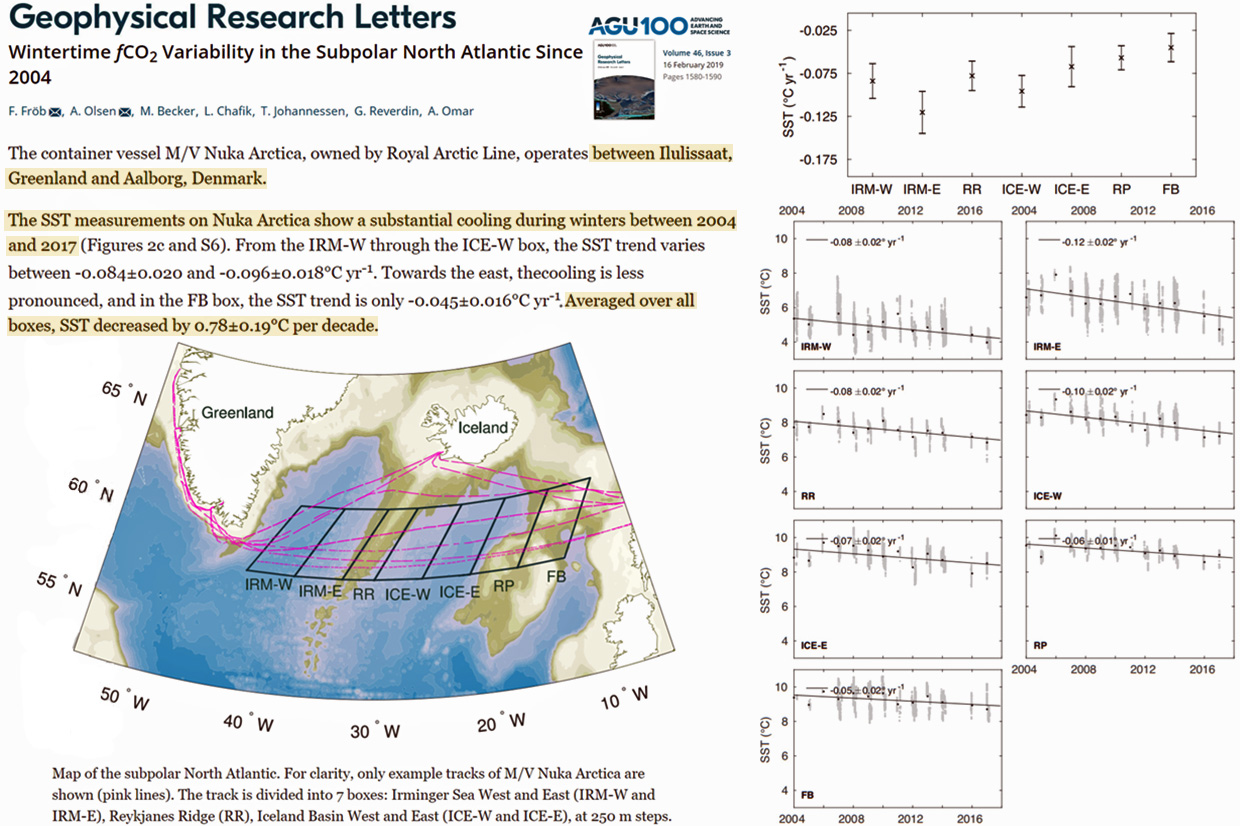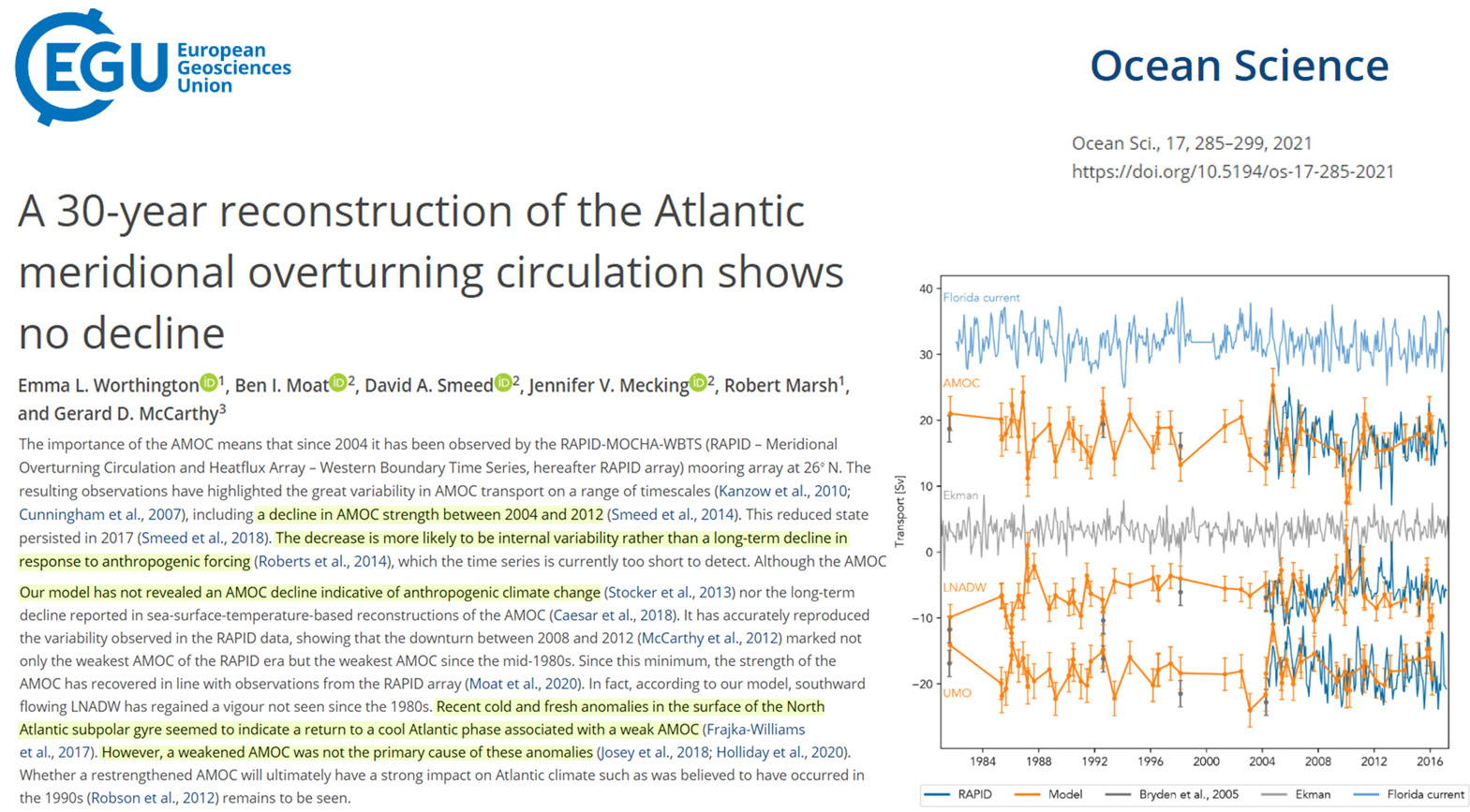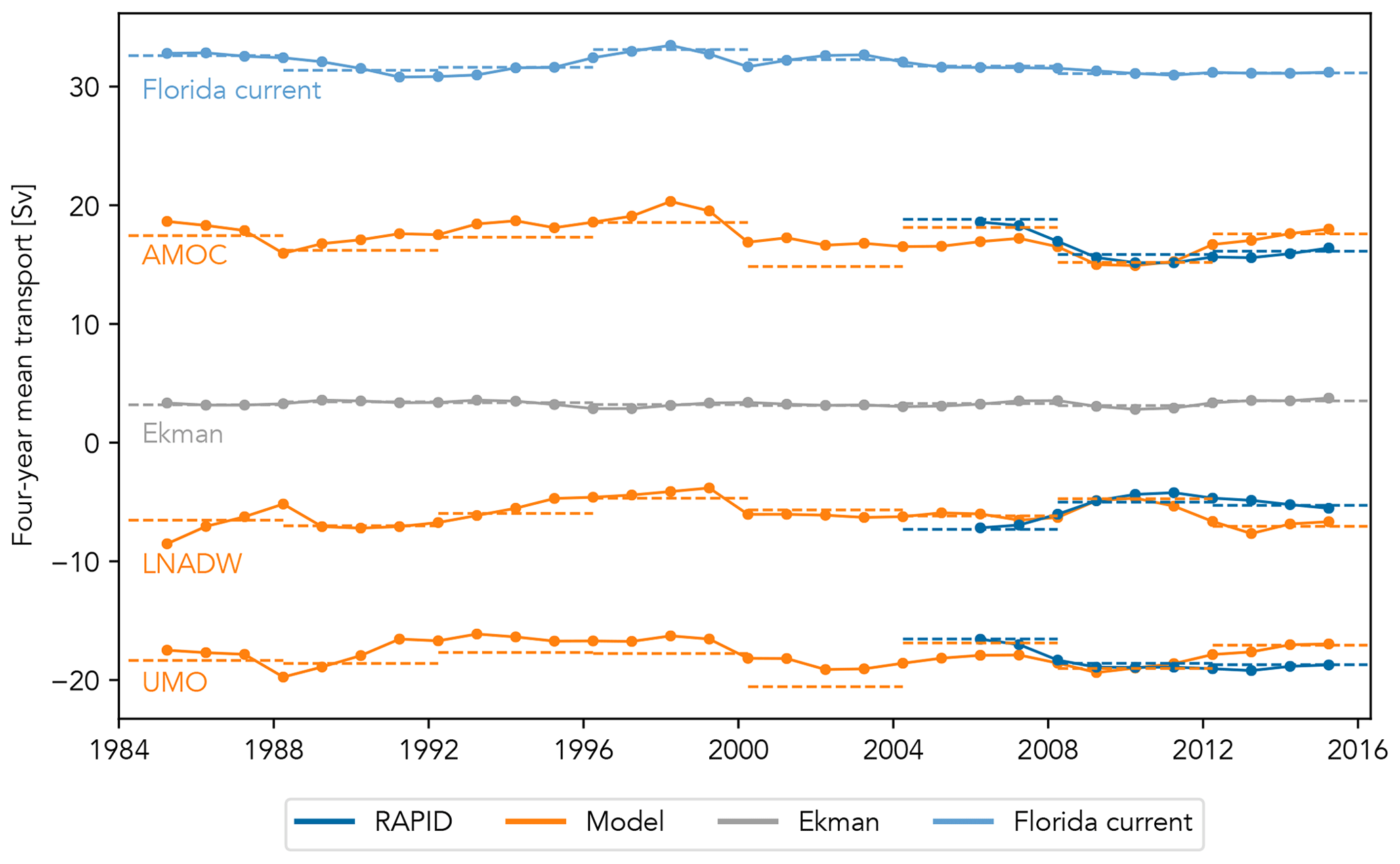High-resolution climate models have projected a “decline of the Atlantic Meridional Overturning Circulation (AMOC) under the influence of anthropogenic warming” for decades (Lobelle et al., 2020). New research that assesses changes in the deeper layers of the ocean (instead of “ignoring” these layers like past models have) shows instead that the AMOC hasn’t declined for over 30 years.
The North Atlantic has been rapidly cooling in recent decades (Bryden et al., 2020, Fröb et al., 2019). A cooling of “more than 2°C” in just 8 years (2008-2016) and a cooling rate of -0.78°C per decade between 2004 and 2017 has been reported for nearly the entire ocean region just south of Iceland. The cooling persists year-round and extends from the “surface down to 800 m depth” 
Image Source: Bryden et al., 2020

Image Source: Fröb et al., 2019
Those who favor an anthropogenic explanation for these rather inconvenient cooling trends have leaned on the climate models that say the ocean’s dominant heat transport mechanism – the AMOC – has been declining in response to anthropogenic greenhouse gas forcing.
But now a new study (Worthington et al., 2021) throws cold water on this claim too.

Image Source: Worthington et al., 2021
Reconstructing over 30 years of AMOC variability (1981-2016), the authors use a “higher-fidelity empirical model of AMOC variability” that, unlike past assessments, does not “ignore changes in the deep circulation”.
The authors do indeed find there was a brief dip in the AMOC from 2004-2012. But even this temporary decline was dominated by internal variability rather than being associated with anthropogenic forcing.
In fact, Worthington and colleagues have determined that there has been “no overall AMOC decline” since monitoring began in 1981. This contradicts the results of high-resolution climate models.

Image Source: Worthington et al., 2021
Consequently, the cooling in the North Atlantic can no longer be dismissed as a response to an anthropogenically-weakened AMOC.
Something else is driving the cooling.





Has any prediction which is based on the CO2 hypothesis not been falsified?
I can’t think of one, but I don’t know them all.
Recalling the NTZ-post on 15/Nov/2020 on PIK’s claim having a ‘superior El Niño one-year forecasting model ‘ predicting an El Nino 2020/21, which went grossly wrong, the AMCO climate models seem hardly more capable to analyze “ the influence of anthropogenic warming”. What went wrong with PIK’s El Niño forecast is discussed here:
https://oceansgovernclimate.com/instead-of-el-nino-la-nina-2020-21-came/
Ocean cycles are very complex, not only is there the well known and easily recognized 60-70 year cycles but also there is the Atlantic to Pacific back to Atlantic run (and also the Pacific to Atlantic and back to the Pacific). These are longer cycles of at least 1000 years and as such carry with them warm and cool waters (see https://2.bp.blogspot.com/-87v9WTGTCw0/TiWG-_4QP8I/AAAAAAAAAAc/yY_KBPl5Pco/s1600/Ocean+curernt.jpg ). There are also many subcycles that operate variously at shorter time scales (than 60-70 years). All these cycles interact to give the ocean temperatures and movements we can measure (see https://cimss.ssec.wisc.edu/sage/oceanography/lesson3/concepts.html ).
All of this is still subject to lots of research (as shown above) as the oceanic and energy flows make themselves apparent. Anyone who believes that an isolated cycle like the AMO can tell the whole story of energy interactions in ocean cycles will no doubt learn the brutal lesson of nature — it’s all very, very complex.
This is going to upset the alarmists —
Remember this? https://twitter.com/i/status/1364808090021986309
What will they do have a party for the return of the glacier and the indication that the world seems to be slipping back to cooler and more difficult times?
Oops forgot reference to quoted text, it’s from here —
https://www.nbcnews.com/mach/science/key-greenland-glacier-growing-again-after-shrinking-years-nasa-study-ncna987116